By Johanna Adashek
At the intersection of people and the planet, Earth Law is a broad term encompassing the rights to a healthy environment, rights of nature, Indigenous rights, rights to future generations, and much more. Earth law is foundational in its emphasis on interdependency among Earth’s systems and its recognition that humans also flourish when the Earth can flourish. Earth law takes an ecocentric view, recognizing the inherent importance of protecting the Earth for the sake of the Earth itself. GW Law’s Environmental and Energy Law Program is proud to have co-hosted the 2023 Earth Law Symposium with the Earth Law Center, where experts, leaders, academics, and practitioners discussed and analyzed shortcomings and advancements in current statutes, regulations, legal systems, and governance strategies to protect our fragile planet and its vulnerable communities.
The first panel laid the foundation for the day’s discourse with remarks from two Earth Law scholars. Cormac Cullinan, author of Wild Law: A Manifesto for Earth Justice, and Tony Zelle, lead editor of Earth Law: Emerging Ecocentric Law—A Guide for Practitioners, discussed the history of the Earth law movement and its impact on the Ecozoic revolution. Exploring the potential mechanisms to address environmental crises and varying viewpoints is highly valuable for young lawyers who soon will confront the triple planetary crisis (climate change, pollution, and biodiversity loss) in their careers.




Wonder is an essential element of an Earth lawyer’s practice, as are curiosity and imagination. That is how we can effect change, because we have to conceive the inconceivable and make the impossible possible.
Tony Zelle, General Counsel, Earth Law Center


Conversation then turned to the inclusive nature of Earth Law. The Nature Governance panel discussed incorporating various constituent viewpoints in governmental decision-making and elaborating on existing and potential Rights of Nature. Looking back to the failures of our current methods of governance, the Nature Governance panel proposed some solutions to the environmental crises, environmental injustice, and inequality in representation on environmental matters.


Audience members also had the opportunity to learn about Earth law in context with a panel on Rights of Nature in Ecuador. As the first country to enshrine Rights of Nature in its constitution in 2008, Ecuador provides a useful case study on what Rights of Nature can look like. This insightful panel played an important role bridging the discourse between high-level academic theory and real-world applications.

Professor Mary Christina Wood kicked off Day 2 of the Earth Law Symposium with an argument for increased reliance on the public trust doctrine through the “atmospheric trust” litigation throughout the U.S. and the world that she inspired and its ability to protect future generations.
The symposium turned back to Rights of Nature but zoomed out for a wider approach allowing conversation to flow between proponents and critics of Rights to Nature. This allowed for a balanced discussion that evaluated the future opportunities for and obstacles to the integration of Rights of Nature mechanisms within the field of environmental law.
Grant Wilson (left chair); Randall Abate (middle chair); Noah Sachs (right chair); Kelsey Leonard (zoom); Carl Bruch (zoom)
To be an Earth Lawyer, you need to be a visionary–to care for today’s and cultivate tomorrow’s vision. The Rights of Nature movement is intrinsically about looking ahead by taking care of what we are doing today–this is especially true of youth-led initiatives that support this evolutionary change and transformation.
Grant Wilson, Executive Director, Earth Law Center


The symposium addressed the importance of adopting an ecocentric approach to protect the rights of marine ecosystems and the role that rights play in biodiversity preservation and ecosystem resilience. Panelists included an interdisciplinary group of attorneys, scientists, and policy makers.






Bottom Middle Photo: Kevin Schneider (left); Kelsey Leonard (middle); Mackenzie Landa (zoom)
The symposium also offered a platform for collaboration between environmental rights and animal rights. Exemplifying this cooperation, both Assistant Dean for Environmental Law Studies, Randall Abate, and Assistant Dean for Animal Law, Kathy Hessler, served as panel moderators. Their discussions of rights of nature, animal rights, and rights of future generations underscored the delicate balance and melting pot that Earth law represents.

The final segment of the day focused on the future of Earth Law and the role that lawyers and other advocates can play in advancing its principles. While the field of Earth law is relatively young, it has massive potential for growth and influence on the direction of environmental law.
Herman Greene; Tony Zelle; Randall Abate; Natalia Greene
It was a privilege for GW’s Environmental and Energy Law program to host this first-of-its-kind event featuring experts from around the nation and the world on such an important and emerging area of law. I am particularly inspired by the symposium’s post-event impact. Several GW Law students approached me in the weeks after the event expressing interest in writing articles, pursuing internships, and exploring possible career paths on Earth law topics. To me, this is the best evidence of a successful symposium.
Randall S. Abate, Assistant Dean for Environmental Law Studies, GW Law

Thank you to everyone who participated in the 2023 Earth Law Symposium!

Johanna Adashek
Jo is the Visiting Associate Professor and Environmental Law Fellow at GW Law







